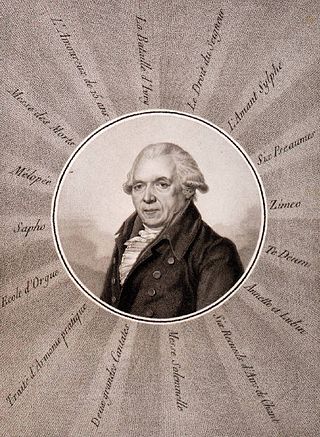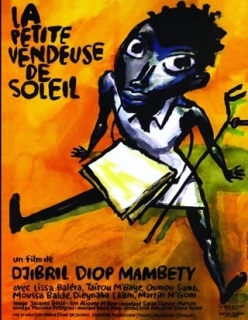Wasis Diop is a Senegalese musician of international renown, known for blending traditional Senegalese folk music with modern pop and jazz.

Aminata Sow Fall is a Senegalese-born author. While her native language is Wolof, her books are written in French. She is considered "the first published woman novelist from francophone Black Africa".

Djibril Diop Mambéty was a Senegalese film director, actor, orator, composer and poet. Though he made only five feature films and two short documentary films, they received international acclaim for their original and experimental cinematic technique and non-linear, unconventional narrative style.
Diop, uncommonly spelled Dioup, is a popular Wolof surname in Senegal and Gambia, and may refer to:
The World Cinema Project (WCP), formerly World Cinema Foundation, is a non-profit organization devoted to the preservation and restoration of neglected world cinema, founded by Martin Scorsese.

"Plaisir d'amour" is a classical French love song written in 1784 by Jean-Paul-Égide Martini (1741–1816); it took its text from a poem by Jean-Pierre Claris de Florian (1755–1794), which appears in his novel Célestine.
Ben Diogaye Bèye is a Senegalese filmwriter, filmmaker, film producer and journalist. He was the assistant director of nearly a dozen Senegalese films, including Touki Bouki with Djibril Diop Mambety, Baks with Momar Thiam, Sarah et Marjama with Axel Lohman, and the co-screenwriter of the latter two.

The cinema of Senegal is a relatively small film industry which experienced its prime from the 1960s through to the early 1980s, but has since declined to less than five feature films produced in the last ten years. Senegal is the capital of African cinema and the most important place of African film production after its independence from France in 1960.

Senegalese literature is written or literary work which has been produced by writers born in the West African state. Senegalese literary works are mostly written in French, the language of the colonial administration. However, there are many instances of works being written in Arabic and the native languages of Wolof, Pulaar, Mandinka, Diola, Soninke and Serer. Oral traditions, in the form of Griot storytellers, constitute a historical element of the Senegalese canon and have persisted as cultural custodians throughout the nation's history. A form of proto-Senegalese literature arose during the mid 19th century with the works of David Abbé Boilat, who produced written ethnographic literature which supported French Colonial rule. This genre of Senegalese literature continued to expand during the 1920s with the works of Bakary Diallo and Ahmadou Mapaté Diagne. Earlier literary examples exist in the form of Qur’anic texts which led to the growth of a form African linguistic expressionism using the Arabic alphabet, known as Ajami. Poets of this genre include Ahmad Ayan Sih and Dhu al-nun.
Twenty Years of African Cinema is a 1983 Tunisian documentary film directed by Férid Boughedir.

Hyenas is a 1992 Senegalese film adaptation of Friedrich Dürrenmatt's Swiss-German satirical tragicomedy play The Visit (1956), directed by Djibril Diop Mambéty. The intimate story of love and revenge parallels a critique of neocolonialism and African consumerism. It was entered into the 1992 Cannes Film Festival.

La Petite Vendeuse de Soleil is a 1999 Senegalese drama film, directed by Djibril Diop Mambéty which premiered after his death in 1998.

Badou Boy is a 1970 Senegalese film, directed by Djibril Diop Mambéty. The film follows the adventures of Badou Boy, a cheeky young man, as he travels through the streets of Dakar on the city buses.

The Cineteca di Bologna is a film archive in Bologna, Italy. It was founded on 18 May 1962.
Contras'city is a Senegalese 1968 short documentary film.
Parlons Grand-mère is a Senegalese 1989 short documentary film.
The 8th Moscow International Film Festival was held from 10 to 23 July 1973. The Golden Prizes were awarded to the Soviet film That Sweet Word: Liberty! directed by Vytautas Žalakevičius and the Bulgarian film Affection directed by Ludmil Staikov.
Trances is a 1981 documentary film about the influential Moroccan avant-pop band Nass El Ghiwane. It was shot, written, and directed by Ahmed El Maânouni.

Mati Diop is a French film director and actress. She won the Grand Prix at the 2019 Cannes Film Festival for her feature film debut, the supernatural romantic drama Atlantics, and the Golden Bear at the 2024 Berlin International Film Festival for her second feature film, the documentary Dahomey. As an actress, she is known for the drama film 35 Shots of Rum (2008).
Moussa Bathily is a Senegalese history teacher, journalist, film director and producer, screen writer, and novelist.










